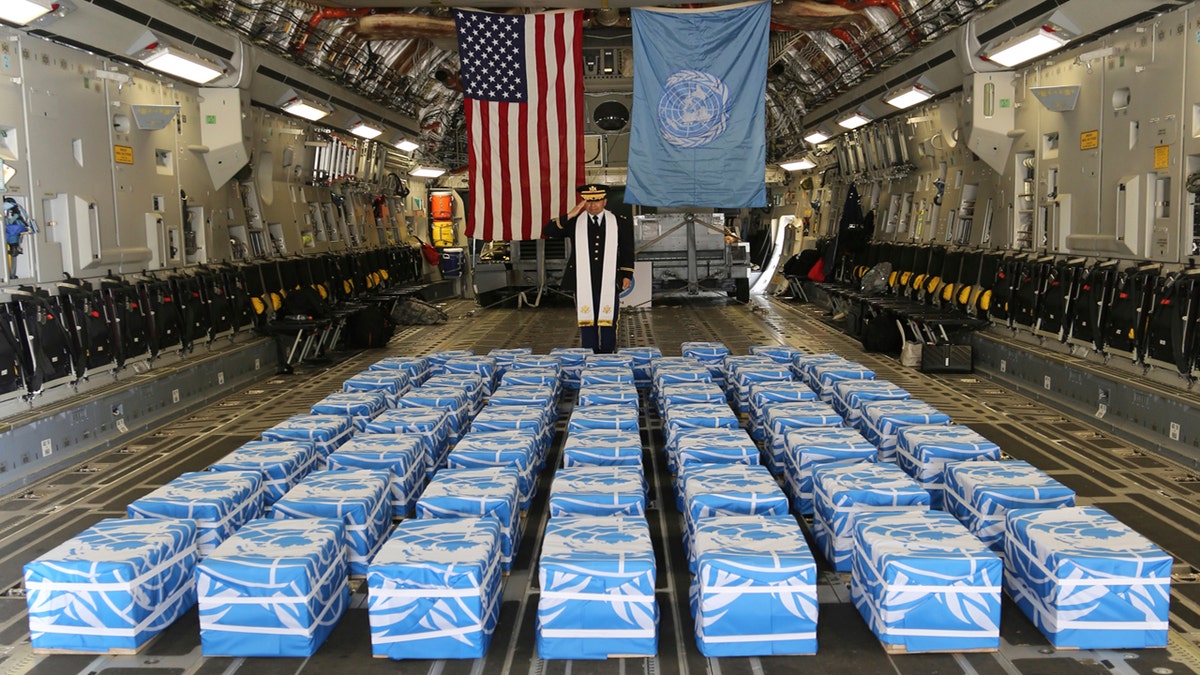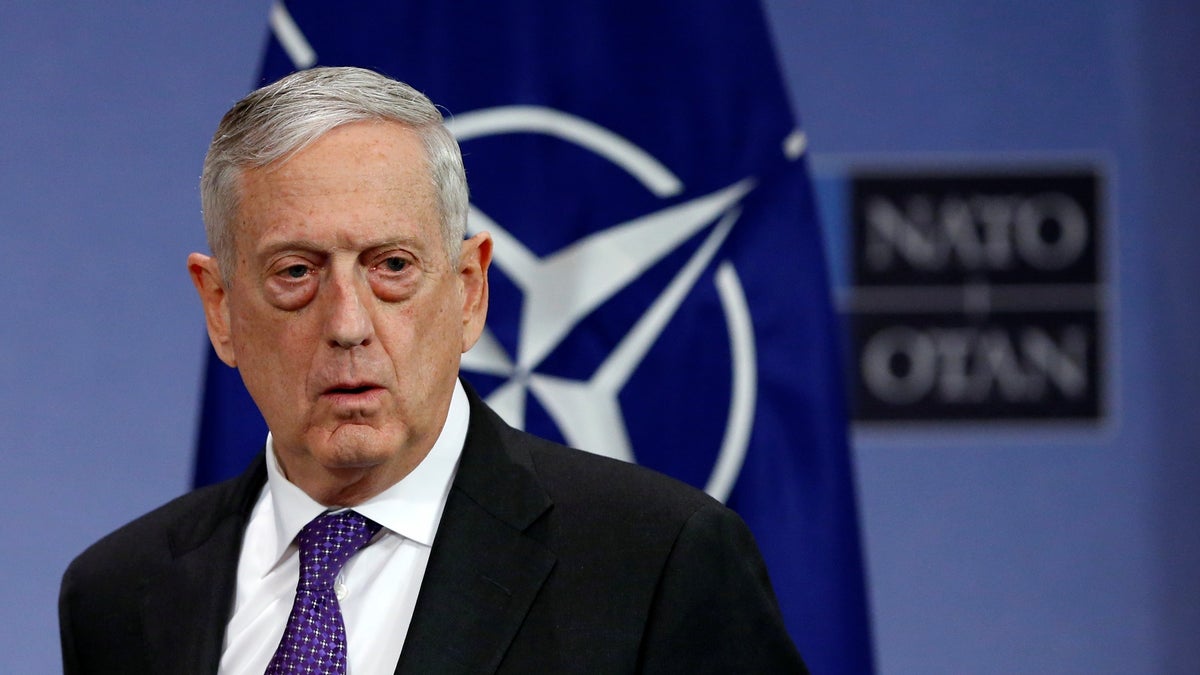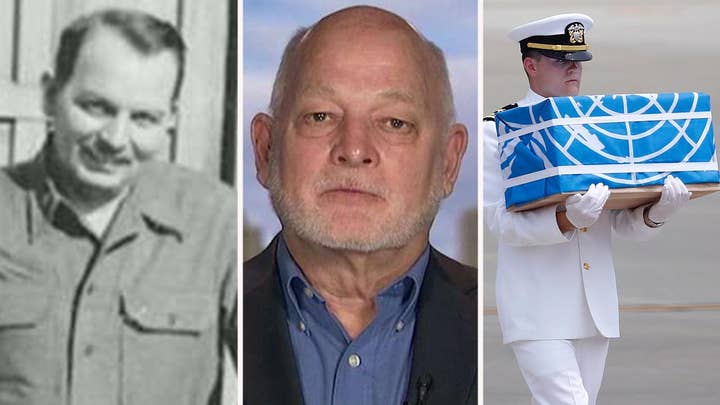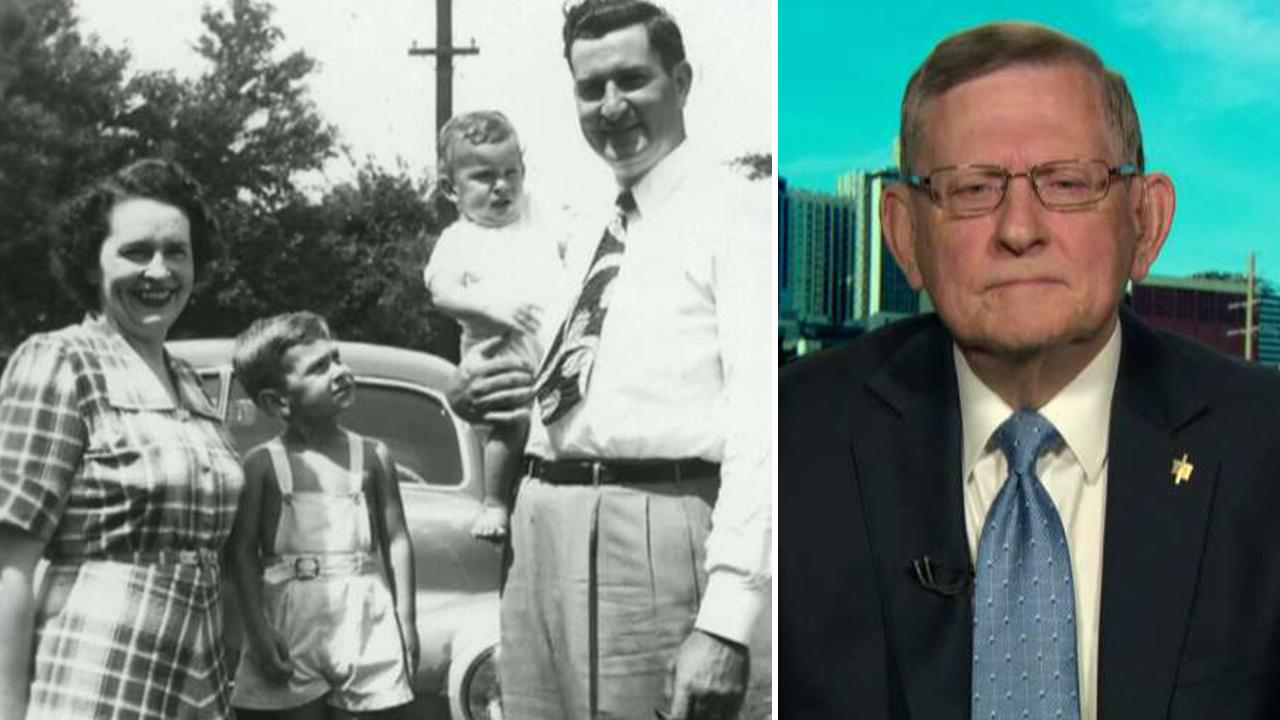
United Nations Command Chaplain U.S. Army Col. Sam Lee performs a blessing of sacrifice and remembrance on the 55 cases of remains believed to be U.S. servicemen killed during the Korean War and returned by North Korea at Osan Air Base in Pyeongtaek, South Korea, July 27, 2018. (U.S. Army via AP)
North Korea last week returned 55 boxes said to contain the remains of U.S. service members who fought in the Korean War.
But only a single dog tag was included in the delivery -- with no other information to help identify each individual, a U.S. defense official said Tuesday.
The official, speaking on condition of anonymity, said it would probably take months, if not years, for U.S. forensics experts to fully determine individual identities from the remains, which have not yet been confirmed by U.S. specialists to be those of American service members.
"We don't know who's in those boxes."
Defense Secretary Jim Mattis said last week that the return of the remains was a welcome development in U.S.-North Korea relations, but not a guarantee that the remains were those of U.S. war dead.
"We don't know who's in those boxes," Mattis said.

U.S. Defense Secretary Jim Mattis
He noted that some could turn out to be remains of missing service members from other nations that fought in the Korean War in the early 1950s.
"They could go to Australia," Mattis said. "They have missing, France has missing, Americans have. There's a whole lot of us. So, this is an international effort to bring closure for those families."
During the Korean War, combat troops of 16 other United Nations-member countries fought alongside U.S. service members on behalf of South Korea. Some of them, including Australia, Belgium, France and the Philippines, have yet to recover some of their war dead from North Korea.
The anonymous defense official also did not know details about the single dog tag, including the name on it, or whether it was even that of an American military member.
The 55 boxes were handed over at Wonsan, North Korea, last Friday and flown aboard a U.S. military transport plane to Osan Air Base in South Korea, where U.S. officials catalogued the contents.
After a repatriation ceremony at Osan on Wednesday, the remains will be flown to Hawaii where they will undergo in-depth forensic analysis, in some cases using mitochondrial DNA profiles, at a Defense Department laboratory to attempt to establish individual identifications.
Many families who are awaiting the return of their loved ones from the Korean War have already submitted DNA samples to the laboratory to aid in the process, the Minneapolis Star Tribune reported.
North Korea provided the 55 boxes in a delayed fulfillment of a commitment its leader, Kim Jong Un, made to President Trump at their Singapore summit on June 12.
Nearly 7,700 U.S. service members were listed as missing and unaccounted for from the 1950-53 Korean War.
The Pentagon estimates that of the approximately 7,700 U.S. MIAs from the Korean War, about 5,300 are unaccounted for on North Korean soil.
The war killed millions, including 36,000 American soldiers, according to the Star Tribune.
Richard Downes, whose father, Air Force Lt. Hal Downes, is among the Korean War missing, said this turnover of remains, having drawn worldwide attention, has the potential to put the U.S. back on track to finding and eventually identifying many more.
Downes, 70, was 3½ when his father's B-26 Invader went down on Jan. 13, 1952, northeast of Pyongyang, the North Korean capital.
His family was left to wonder about his fate. Downes, now executive director of the Coalition of Families of Korean and Cold War POW/MIAs, which advocates for remains recovery, said he hopes the boxes that arrive in Hawaii on Wednesday prove to be a vanguard that leads to a fuller accounting for families.
"These 55 can set the stage for more to come."
"These 55 can set the stage for more to come," Downes said.
The Associated Press contributed to this report.


